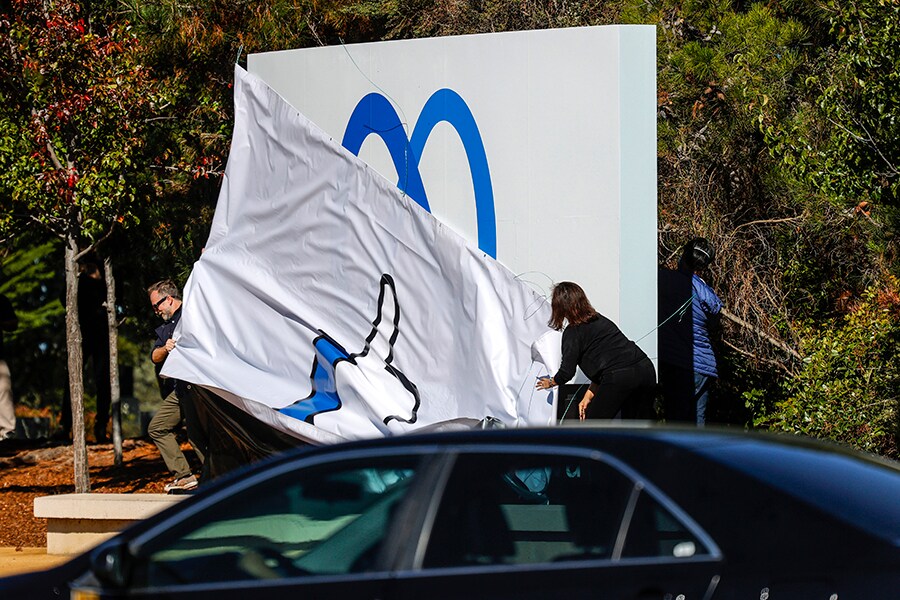
What to do about Facebook, and what not to do
The company is among the largest collectors of humanity's most private information, one of the planet's most-trafficked sources of news, and it seems to possess the ability, in some degree, to alter public discourse
 Facebook employees unveil a new logo and the name 'Meta' on the sign in front of Facebook headquarters on October 28, 2021 in Menlo Park, California. A new name and logo were unveiled at Facebook headquarters after a much anticipated name change for the social media platform.
Facebook employees unveil a new logo and the name 'Meta' on the sign in front of Facebook headquarters on October 28, 2021 in Menlo Park, California. A new name and logo were unveiled at Facebook headquarters after a much anticipated name change for the social media platform.
Image: Justin Sullivan/Getty Images
One of the most unsettling revelations in the cache of internal documents leaked by former Facebook employee Frances Haugen has been just how little we know about Facebook, and consequently how unprepared our political culture is to do anything about it, whatever it is.
That’s the first problem in fixing Facebook — there isn’t much agreement about what, exactly, the problem with Facebook is. The left says it’s Facebook’s amplification of hate, extremism and misinformation about, among other things, vaccines and the last presidential election. President Joe Biden put it bluntly this summer: “They’re killing people.”
Former President Donald Trump and others on the right say the opposite: Social media giants are run by liberals bent on silencing opposing views. In a statement last week, Trump called Mark Zuckerberg, Facebook’s founder, “a criminal” who altered “the course of a Presidential Election.”
Beyond concerns about the distortion of domestic politics, there are a number of other questions about Facebook, Instagram and WhatsApp — all of which, Zuckerberg announced last week, are now under a new corporate umbrella called Meta. Is Instagram contributing to anxiety and body-shaming among teenagers? Are Facebook’s outrage-juicing algorithms destabilizing developing countries, where the company employs fewer resources to monitor its platform than it does in its large markets? Is Facebook perpetuating racism through biased algorithms? Is it the cause of global polarization, splitting societies into uncooperative in-groups?
©2019 New York Times News Service







